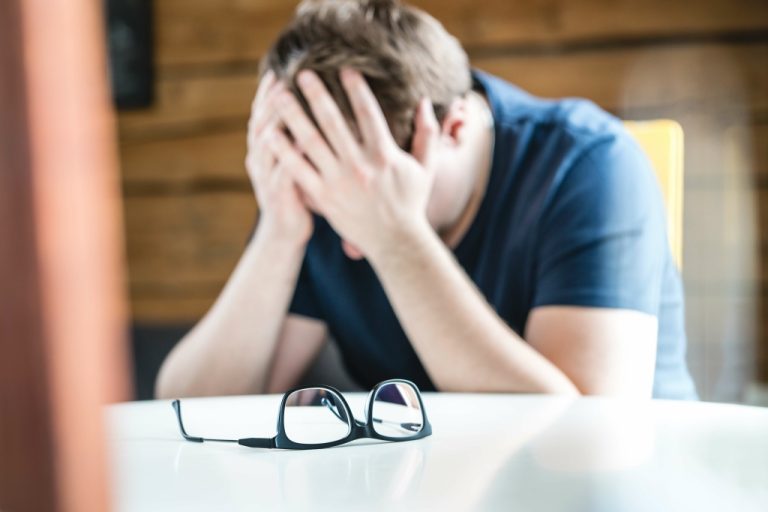Content
As a therapist that helps people stop drinking, I often hear from clients that they want to make a change, but are intimidated by the potential of experiencing withdrawal symptoms. Withdrawal is a real possibility when cutting back or cutting out alcohol, but it can be safely managed and mitigated with the right tools. Alcohol is a popular substance, especially in polydrug use such as cocaine and benzodiazepines. If left untreated, alcohol dependence can transition into an alcohol use disorder.
Much of the lost functionality in the brain returns relatively quickly. Coordination, balance, and fine motor skills improve as brain volume recovers. Higher thought functions like focus and concentration take longer to improve since they are controlled by brain areas that recover volume more slowly. If you’re ready to leave your addiction in the past, put your trust in our licensed and certified addiction therapists. We have more than 120 years of combined experience helping people just like you move past addiction.
The Detox Center Coronavirus Policy Update
So when you’re managing stress or anything to do with your mood, you can be sure that dopamine is involved. It even helps to protect your gastrointestinal lining and works with your immune system – it’s everywhere! That’s why it’s so important to do what you can to stay healthy and make sure your body is making enough of it and using it efficiently. At the Detox Center, we are always available to help those fighting against addiction access the care they need. The brain’s pleasure systems have been altered due to these modifications, causing the drinker to be more influenced by present rewards rather than delayed benefits. Addictive drugs such as alcohol provide fast intoxicating pleasures and impair a person’s impulse control and other higher cognitive functions.
Is 3 days without alcohol enough?
Even if you only have one or two drinks a day, your liver can't cope and can't repair itself, but you don't have to become a 'tea-totaller' to fix it. Your liver needs at least 48 hours without alcohol to repair itself. Cutting back your daily intake won't help your liver.
While not all drinkers will experience brain fog, it is something to be aware of if you are a heavy drinker or find yourself drinking to excess regularly. Many people drink too much too often, putting them at risk for alcohol-related illnesses. Alcoholic blackouts are thought to be caused by over-consumption of alcohol, leading to confusion, memory loss, brain damage, and even death.
The Role of Spirituality in Recovery
This alcohol and brain damage slows down communication between our neurons because it impedes the production of new proteins, which are key components for healthy neural communication. Lowered levels of neurotransmitters can result in problems relating to memory and learning. Alongside alcohol’s neurotoxic effects, we see how it can lead to brain fog. It is alcohol’s effects on the neurotransmitter glutamate that lead us to understand alcohol as a neurotoxin.
What happens to your body after 3 months of no alcohol?
Although positive changes may appear earlier, 3 months of not drinking can not only improve your mood, energy, sleep, weight, skin health, immune health, and heart health. It can even reduce your risk of cancer.
While various areas of the brain heal at varying speeds, the study’s early findings suggest that a significant portion of lost cognitive function is quickly restored. Seek medical assistance if your physical symptoms last for a week or longer. The symptoms you’re experiencing may not be the result of alcohol withdrawal symptoms. However, for some, the physical symptoms will continue even after seven days. If you’re still experiencing physical alcohol withdrawal symptoms after a week, you should contact your healthcare provider immediately. Alcohol-induced brain fog is a state of confusion, lack of focus and mental obscurity that can occur after drinking alcohol and during withdrawal.
Natural Brain Fog Remedies: Ways to Clear the Mental Haze
A trained therapist can help people find ways to cope with the increased levels of stress that they experience during withdrawal. New Horizon is able to provide such therapy, as well as detoxification services if necessary. When someone stops drinking, their body may respond by having increased levels of stress hormones like cortisol. This causes the body to go into a state of hyperactivity as well as increased sensitivity. This can cause sweating, which also brings with it other symptoms such as nausea and vomiting. Please keep in mind that symptoms may vary in severity, and you may not experience the full list below.
Our medical team can help you design a plan to taper off alcohol from home, prescribe medications to manage cravings, and support you in establishing new habits afterwards. We https://stylevanity.com/2023/07/top-5-questions-to-ask-yourself-when-choosing-sober-house.html can also help you assess your risk, and refer you to safe medical detox as needed. The harm that drinking may do to your brain, however, can often be reversed with abstinence.
How Theo Von Found the Inspiration to Get Sober
It’s made by the adrenal gland, just like epinephrine and norepinephrine – the hormones that act behind your fight, flight, or freeze response. This feel-good chemical does a lot more than just make you feel rewarded. Be patient with yourself, and don’t do anything too complicated while you try to get back your brain chemistry to normal.

Only a few clinical trials have studied treatment for hangover symptoms. Future studies using specific antimigraine drugs such as triptans, may show efficacy in controlling at least part of the hangover symptoms cluster. The HSS also allows us to assess the hangover symptoms following early drinking experiences.
Anxiety
The brain has an amazing ability to re-wire itself after damage, but these changes may take time. After the first few days of recovery or sobriety, you will start to notice that the brain fog seems to lessen. You may have breakthrough moments when you can suddenly think clearly, but then these are followed by moments of fuzzy thinking.
